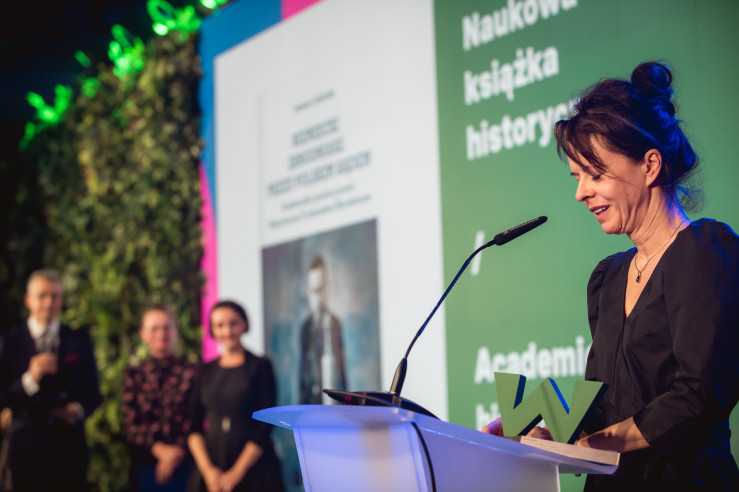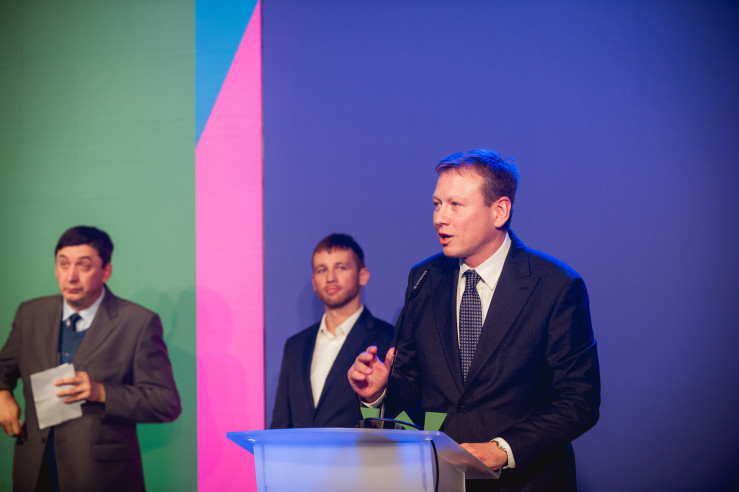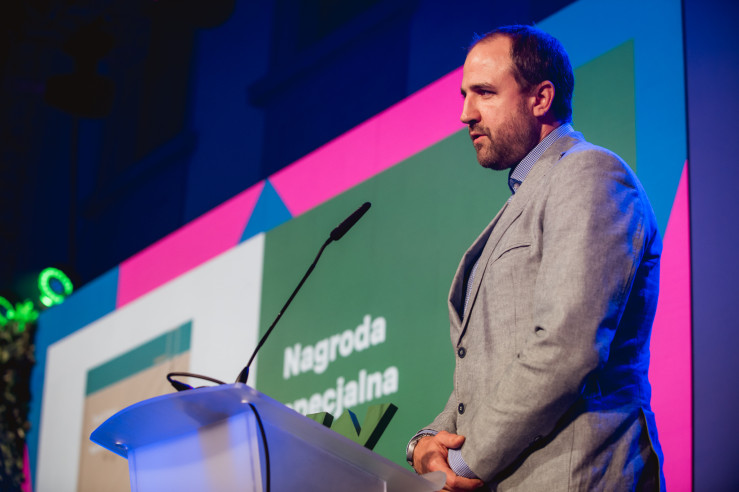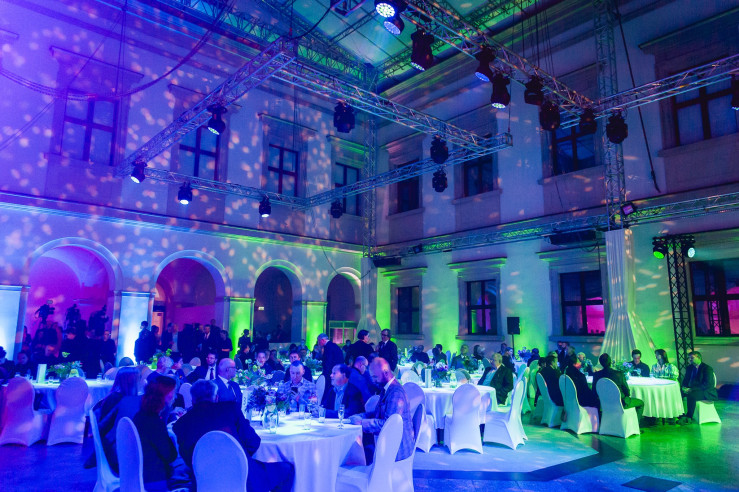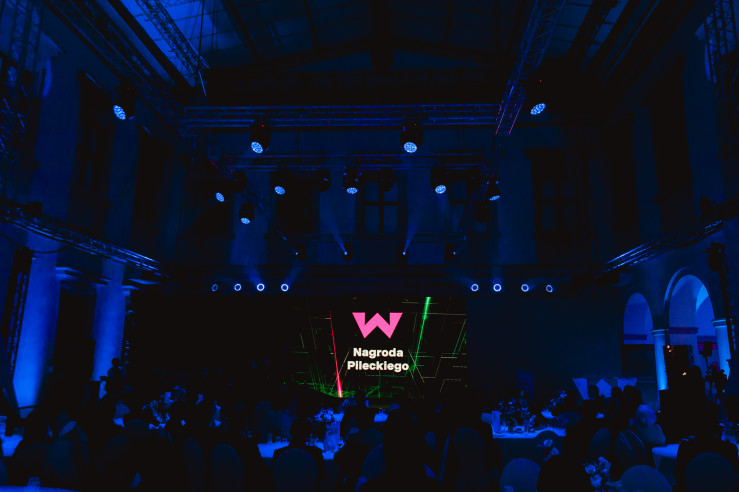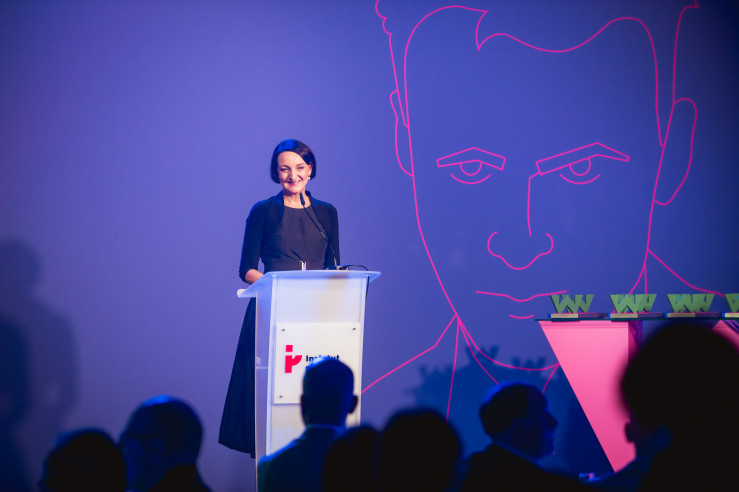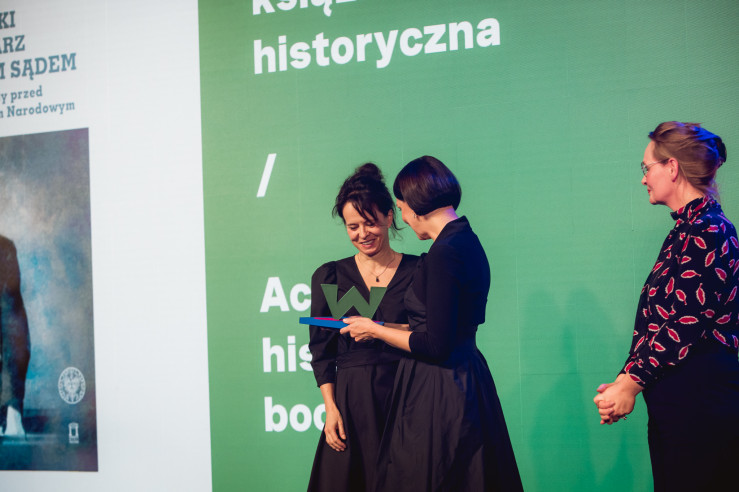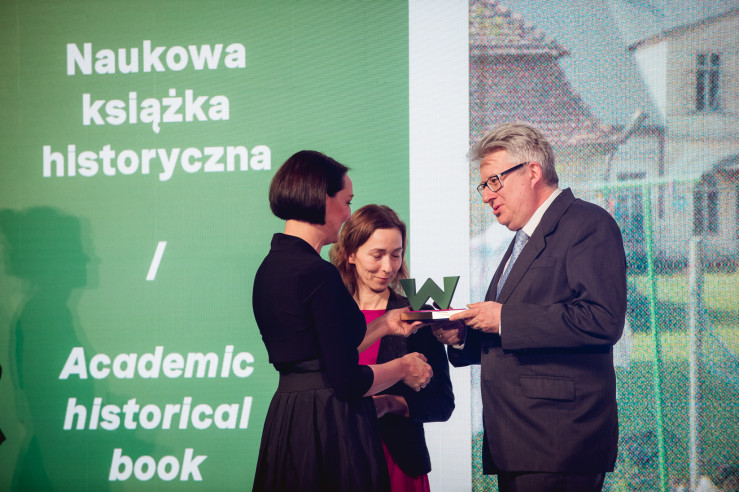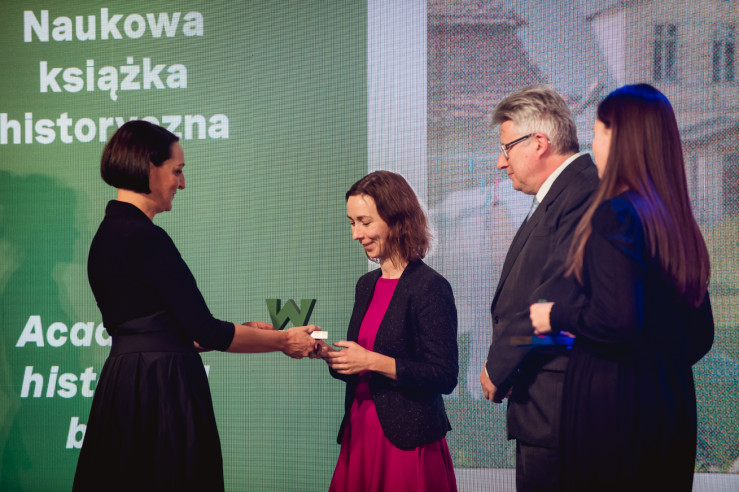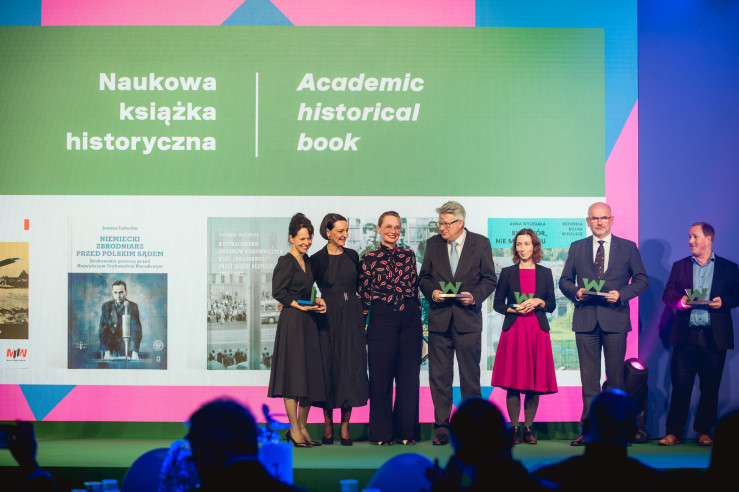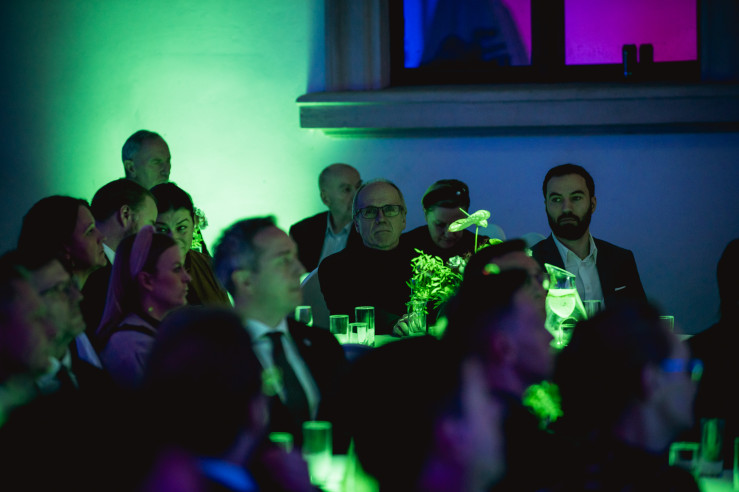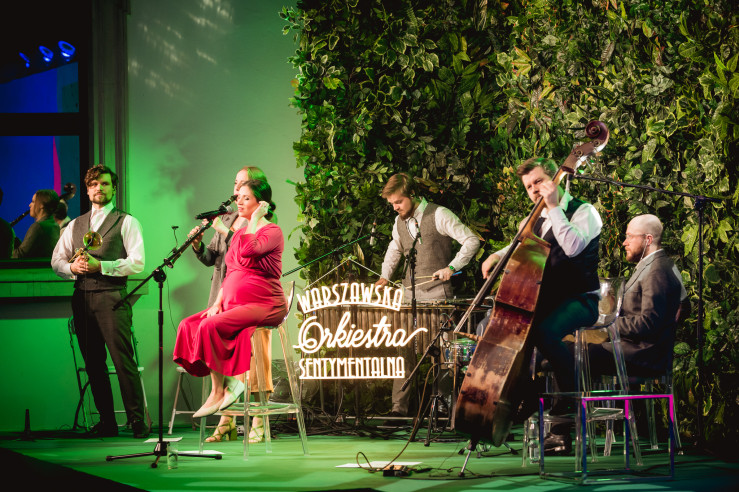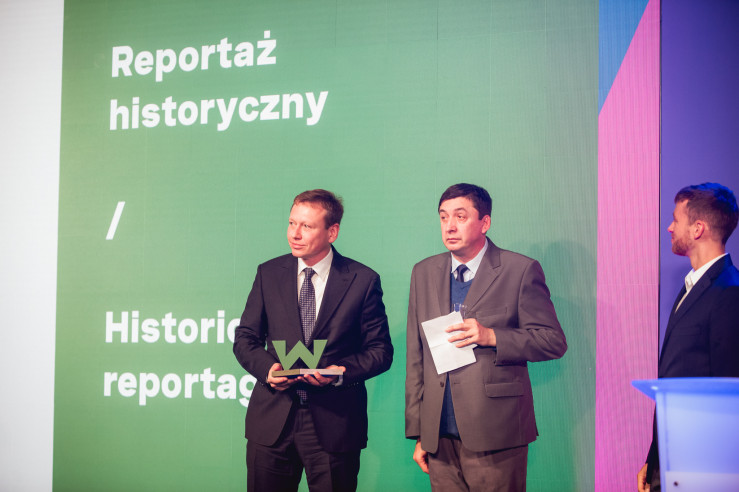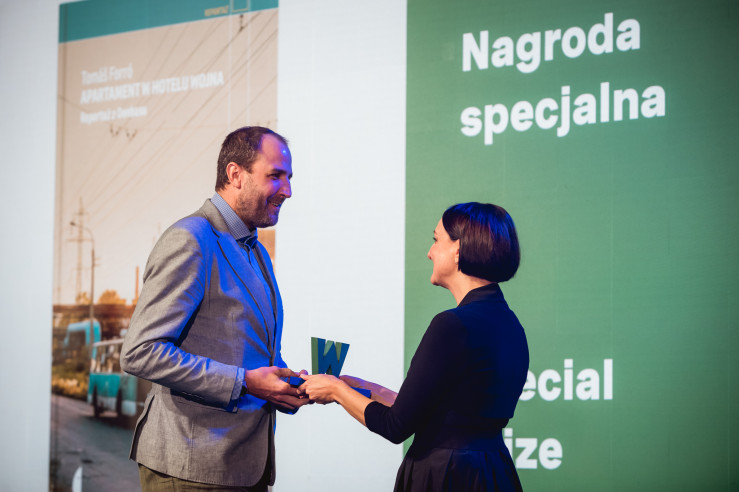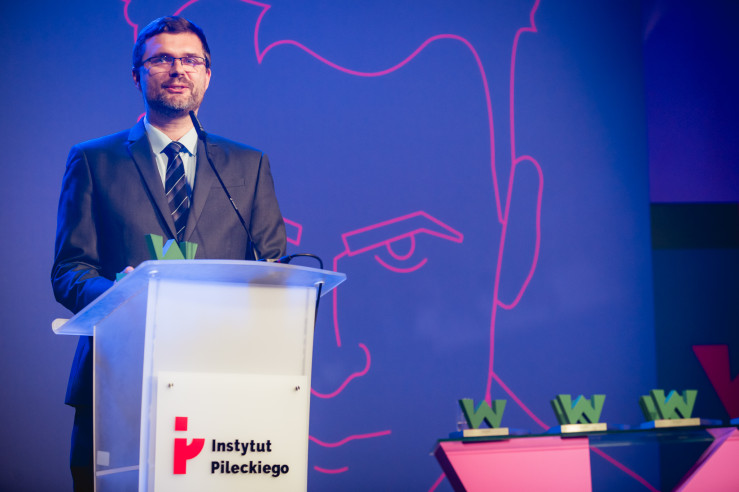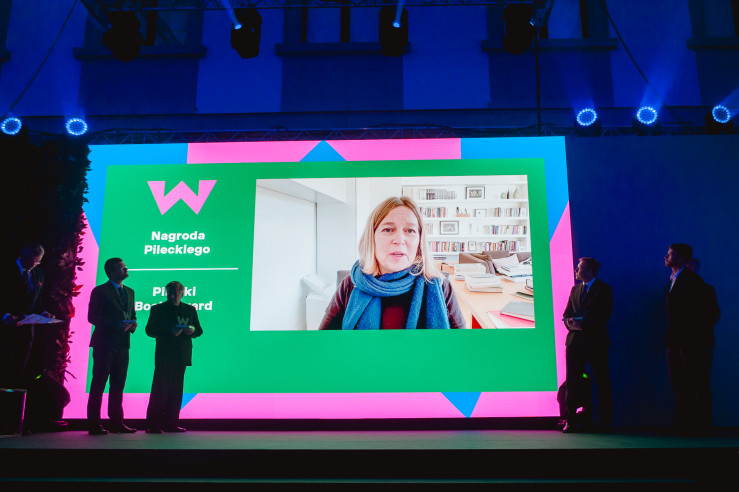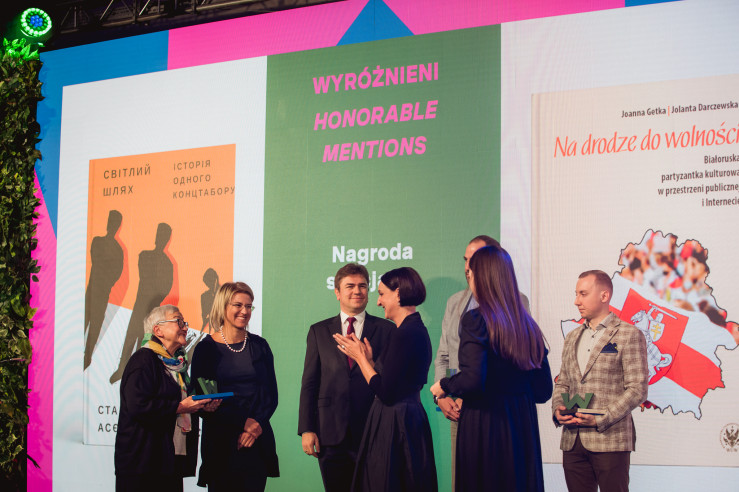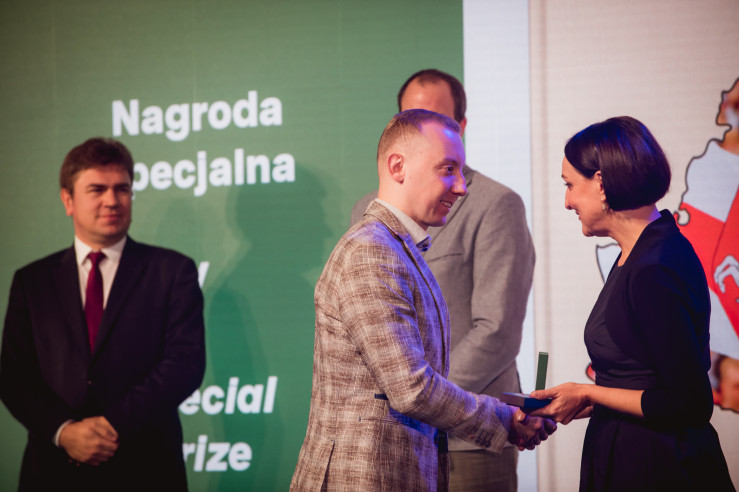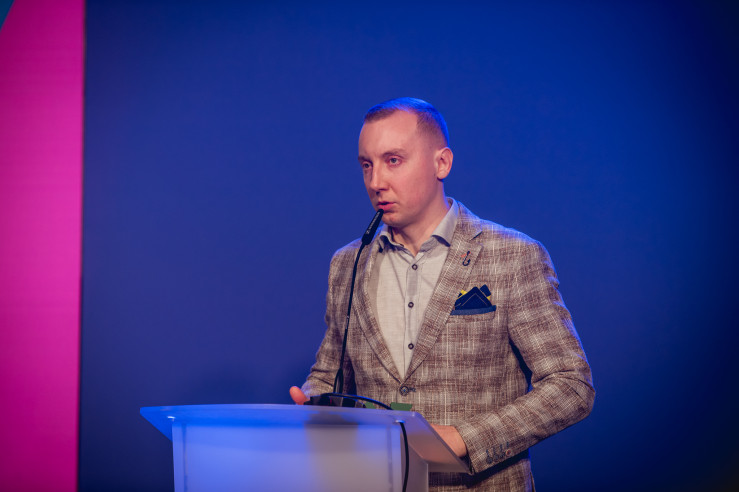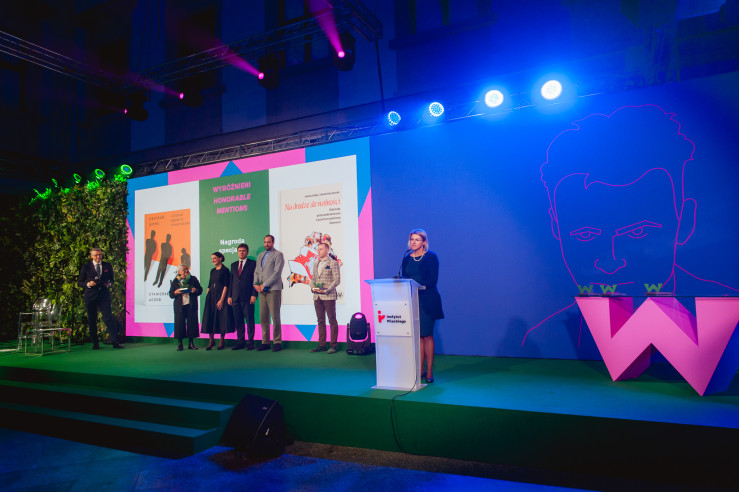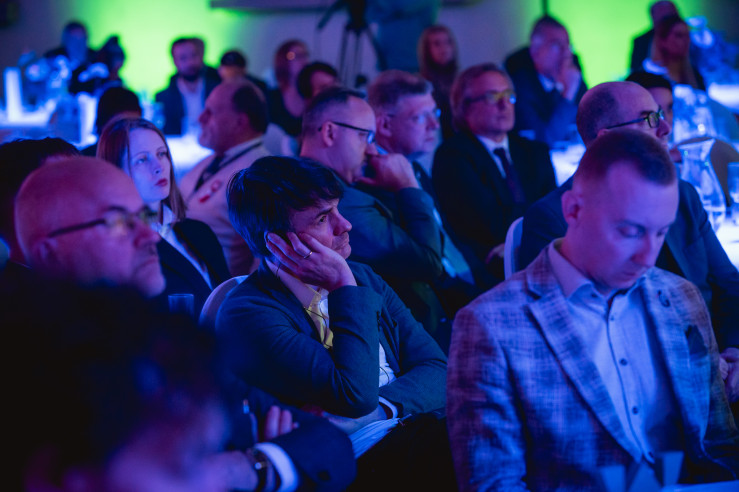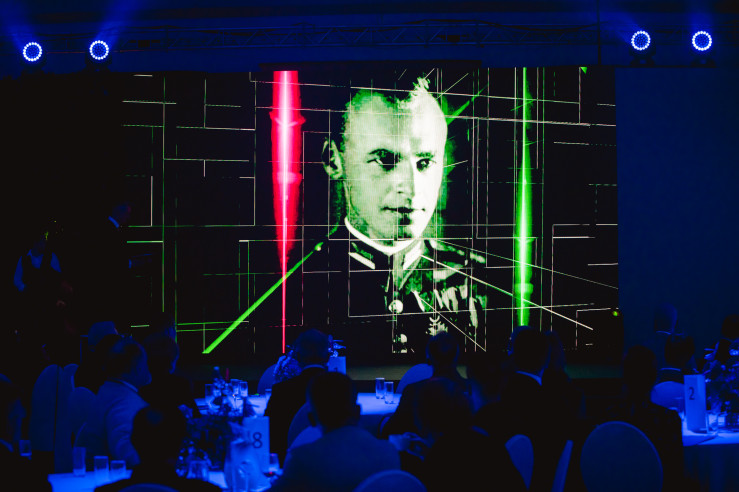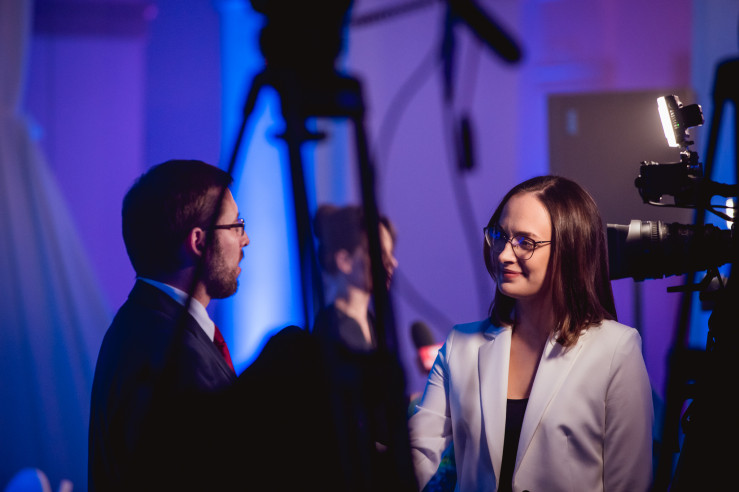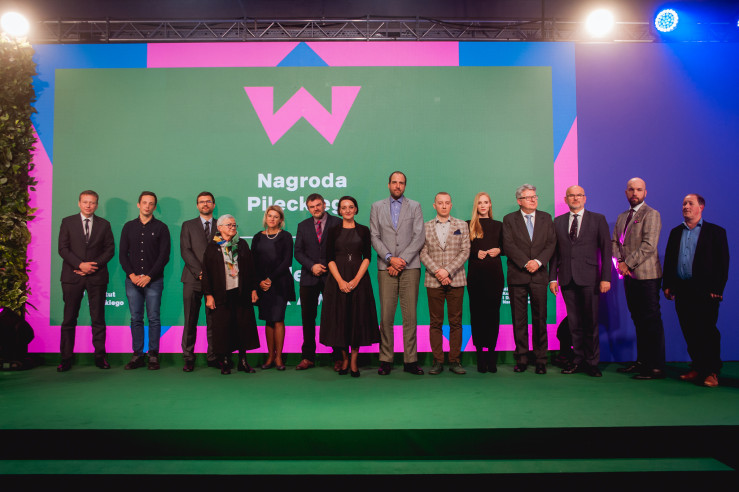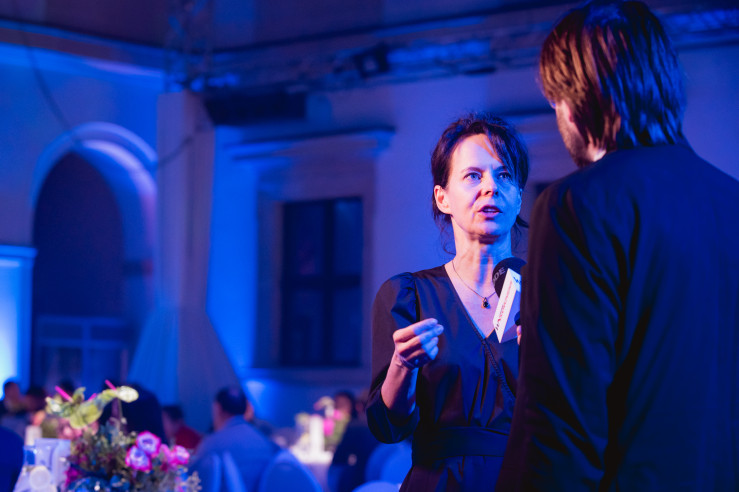The Witold Pilecki International Book Award 2022. The awards ceremony - Instytut Pileckiego
books
22.11.2022 (Tue) 19:00
The Witold Pilecki International Book Award 2022. The awards ceremony
We now know the winners of the Witold Pilecki International Book Award! The Awards Committee has selected three winners and awarded six honorable mentions in recognition of the remarkably high standards demonstrated by this year’s nominees.
The prizes were presented during the awards ceremony held at the Ujazdów Castle in Warsaw.
The nominees were announced at the beginning of October 2022: from among nearly eighty books submitted by authors and publishers, the Awards Committee selected five nominees in each of the three categories. During the awards ceremony the winners were presented with commemorative statuettes and cash prizes. The Awards Committee also awarded honorable mentions.
Academic Historical Book
The prize in this category is awarded to well-researched books comprising an original interpretation and written in an appealing way. The prizes were presented to the winners and recipients of honorable mentions by the Director of the Pilecki Institute Prof. Magdalena Gawin, and a congratulatory speech was given by Prof. Claudia Weber. The prize for the best monograph concerning the Polish experience of the confrontation with two 20th-century totalitarian regimes was awarded to Dr. Joanna Lubecka for her analysis of court proceedings during postwar trials of German war criminals before the Kraków tribunals (Niemiecki zbrodniarz przed polskim sądem. Krakowskie procesy przed Najwyższym Trybunałem Narodowym, IPN, Ośrodek Myśli Politycznej, Kraków 2021).
Honorable mentions were awarded to Anna Wylegała for her book Był dwór, nie ma dworu. Reforma rolna w Polsce (Wydawnictwo Czarne, Wołowiec 2022), as well as Anna Zapalec and Jacek Tebinka for Polska w brytyjskiej strategii wspierania ruchu oporu. Historia Sekcji Polskiej Kierownictwa Operacji Specjalnych (SOE) (Neriton, Warszawa 2021).
Historical reportage
Respectful approach to historical sources, well-organized composition and unbiased narrative were taken into consideration in the historical reportage category. The winner is Andrzej Brzeziecki, who reported the fascinating story of an officer of the Second Department of Polish General Staff (Wielka gra majora Żychonia. As wywiadu kontra Rzesza, Wydawnictwo Literackie, Kraków 2021). The prize was presented by Prof. Marek Kornat (who gave a congratulatory speech concerning the winning author) and Krzysztof Kosior – Witold Pilecki’s great-grandson.
Honorable mentions in the historical reportage category were awarded to Jane Rogoyska (Surviving Katyń – Stalin’s Polish Massacre and the Search for Truth, Oneworld Publications, London 2021) and Krzysztof Mordyński (Sny o Warszawie. Wizje przebudowy miasta 1945–1952, Prószyński i S-ka, Warszawa 2021).
Special prize
We believe that it is our duty to provide various kinds of aid to Ukrainians, who are fighting for their freedom. We would also like to help the members of the opposition in Belarus who are facing repression. It is our duty to provide assistance, but most importantly to make sure that the war in Ukraine – the immense suffering of the civilians and the exceptional military efforts of Ukrainian soldiers – changes the global perspective on Central and Eastern Europe. This is why category III – the special prize – is devoted to Ukraine and Belarus.
– said the Director of the Pilecki Institute, Prof. Magdalena Gawin, during Pilecki Book Awards gala.
When evaluating books in this category, the Awards Committee particularly appreciated a broad scope of reflection, determination in the pursuit of truth, and investigative intuition. The author of the best book detailing Russia’s ongoing aggression against Ukraine since 2014 or the protests in Belarus since 2020 and the repression associated with them is Tomaš Forró (Apartament w hotelu wojna. Reportaż z Dobasu, Wydawnictwo Czarne, Wołowiec 2022).
The Awards Committee decided to award honorable mentions to Stanislav Aseyev (The Torture Camp on Paradise Street, The Old Lion Publishing House, Lviv 2021) as well as to Joanna Getka and Jolanta Darczewska (Na drodze do wolności. Białoruska partyzantka kulturowa w przestrzeni publicznej i Internecie, Wydawnictwa Uniwersytetu Warszawskiego, Warszawa 2021).
The prizes were presented to the winners and recipients of honorable mentions by Prof. Magdalena Gawin and Łukasz Adamski, Deputy Director of the Juliusz Mieroszewski Dialogue Center, who gave a speech on Tomaš Forró’s work.
About the Witold Pilecki International Book Award
The Pilecki Institute in cooperation with the Auschwitz-Birkenau State Museum launched the Witold Pilecki International Book Award in 2021 to celebrate the 120th anniversary of the birth of Witold Pilecki. Choosing Pilecki as the patron of this literary prize was no coincidence – his reports from Auschwitz-Birkenau provide information on the crimes committed by the Germans, describe specific events, and offer an in-depth analysis of the situation in the camp and a broader humanist perspective. The Witold Pilecki International Book Award is presented to authors of the best scholarly and reportage books published in a given year in Polish or English that examine the Polish experience of two totalitarian systems.
The international Awards Committee is comprised of prominent scholars: Dr. Łukasz Adamski, Prof. Richard Butterwick-Pawlikowski, Prof. Marek Cichocki, Dr. Piotr Cywiński (Chairman of the Awards Committee), Prof. Magdalena Gawin, Prof. Patrycja Grzebyk, Prof. Marek Kornat, Dr. Wojciech Stanisławski and Prof. Claudia Weber, as well as war correspondent Jack Fairweather and Krzysztof Kosior – representative of the patron’s family, great-grandson of Witold Pilecki.
In 2021, the Pilecki Book Award was presented to Filip Gańczak for the book Jan Sehn. Tropiciel nazistów and to Christina Lamb for her famous work Our Bodies, Their Battlefield: What War Does to Women (which was published in Polish in spring 2022). At that time no one believed that only several months later in Ukraine, so close to us, a true hell would break loose – one that would affect also women. In light of the ongoing war across Poland’s eastern border, the Pilecki Institute awarded the special prize in the third category. Taken into consideration were exclusively books detailing Russia’s aggression against Ukraine since 2014 or the protests in Belarus since 2020 and the repression associated with them.
See also
- Oppositional Engagement of Women in Authoritarian and Totalitarian Systems of the 20th Century: Poland in a Comparative European Perspective (1919–1989)
conference
Oppositional Engagement of Women in Authoritarian and Totalitarian Systems of the 20th Century: Poland in a Comparative European Perspective (1919–1989)
We invite scholars to participate in an international academic conference devoted to various forms of activity undertaken by women who engaged in opposition and dissent under authoritarian and totalitarian rule in the 20th century.
- CALL FOR PAPERS: Oppositional Engagement of Women in Authoritarian and Totalitarian Systems of the 20th Century: Poland in a Comparative European Perspective (1919–1989)
conference
CALL FOR PAPERS: Oppositional Engagement of Women in Authoritarian and Totalitarian Systems of the 20th Century: Poland in a Comparative European Perspective (1919–1989)
We invite scholars to participate in an international academic conference devoted to various forms of activity undertaken by women who engaged in opposition and dissent under authoritarian and totalitarian rule in the 20th century.
- CALL FOR PAPERS: International academic conference „Soviet Central Asia as a Totalitarian Testing Ground” | Deadline for submissions: April 30
conference
CALL FOR PAPERS: International academic conference „Soviet Central Asia as a Totalitarian Testing Ground” | Deadline for submissions: April 30
The Pilecki Institute in Warsaw invites scholars to take part in the international academic conference “Soviet Central Asia as a Totalitarian Testing Ground”, to be held on 15–17 June 2026 at the Institute’s headquarters in Warsaw.
